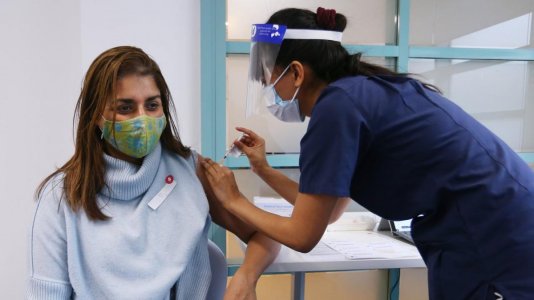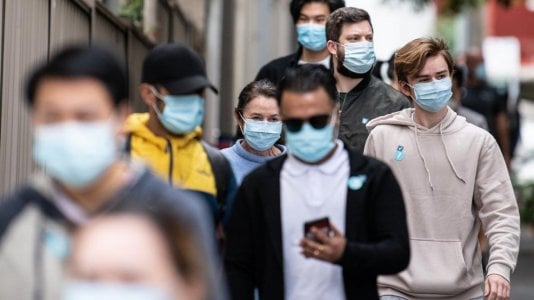SDC Rewards Member
Upgrade yours now
Australia on high alert for 'twindemic' as winter flu season could create a perfect storm
Australia on high alert for 'twindemic' as winter flu season could create a perfect storm
As winter approaches, Australians are being warned to prepare for a potentially severe flu season. Experts say that the reduced exposure to the flu virus over the past two years, combined with low vaccination rates, could lead to a significant outbreak.
With international borders now open and people mingling more freely, the level of protection against the flu is lower than it has been in recent years as measures like mask mandates and social distancing requirements have largely come to an end. This, combined with the fact that the virus is notoriously difficult to predict, means that the potential for a severe outbreak is higher than usual.
Those who have not received this year’s flu vaccine are being encouraged to get vaccinated as soon as possible. This is particularly important for older Aussies.
The peak flu season usually occurs between July and September, but the Royal College of Pathologists of Australasia says this year’s peak could be sooner, with cases of Influenza A already in the community.
Measures to protect people from COVID-19, such as the closure of international borders, quarantine for international travellers, masks, hand sanitisers, social distancing, working from home and school closures, have also been effective in suppressing circulation of flu. However, now that these restrictions have been lifted, the virus can spread more quickly.
Therefore, it is important for everyone to be aware of the symptoms of the flu and to take precautions to prevent its spread. These include washing your hands regularly, avoiding close contact with people who are sick, and covering your mouth and nose when you sneeze or cough. If you do become ill, it is important to stay home and away from others to prevent the spread of the virus.
“This time last year the flu wasn’t such a concern, because we were all in lockdown or in isolation,” he said. “It’ll be different this season, and getting vaccinated against the flu is also something that’s really important to do”, according to Prof Jason Kovacic, a cardiologist at St Vincent’s hospital in Sydney.
“It’s mainly those in their 50s, 60s and 70s with severe underlying conditions getting into trouble at the moment”, he added.
In addition, those who have not yet received their COVID-19 vaccines or are eligible for a booster or “winter dose” are being encouraged to get both jabs at the same time.
Therefore, it is important for everyone to be aware of the symptoms of the flu and to take precautions to prevent its spread. These include washing your hands regularly, avoiding close contact with people who are sick, and covering your mouth and nose when you sneeze or cough. If you do become ill, it is important to stay home and away from others to prevent the spread of the virus.
“This time last year the flu wasn’t such a concern, because we were all in lockdown or in isolation,” he said. “It’ll be different this season, and getting vaccinated against the flu is also something that’s really important to do”, according to Prof Jason Kovacic, a cardiologist at St Vincent’s hospital in Sydney.
“It’s mainly those in their 50s, 60s and 70s with severe underlying conditions getting into trouble at the moment”, he added.
In addition, those who have not yet received their COVID-19 vaccines or are eligible for a booster or “winter dose” are being encouraged to get both jabs at the same time.

A nurse administers the Pfizer vaccine to a client at the St Vincent's Covid-19 Vaccination Clinic
Credits: Lisa Maree Williams/Getty Images
According to the Department of Health, an additional booster of the COVID-19 vaccine is recommended for:
- Adults aged 65 years and older
- Residents of aged care or disability care facilities
- People aged 16 years and older with severe immunocompromise (as defined in the ATAGI statement on the use of a 3rd primary dose of COVID-19 vaccine in individuals who are severely immunocompromised)
- Aboriginal and Torres Strait Islander people aged 50 years and older.
This article is not intended to be medical advice, so we recommend chatting to your GP.
Last edited:






